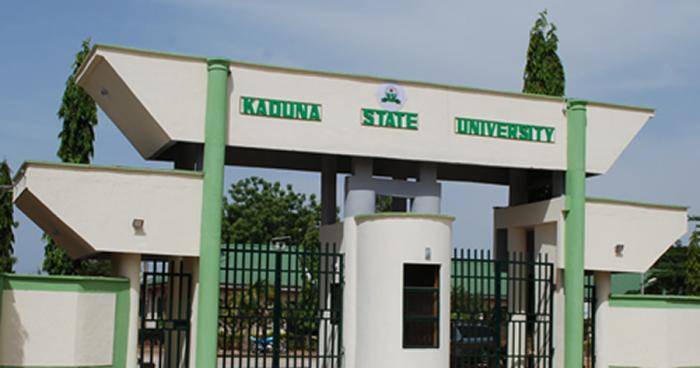Lecturers oppose Kaduna varsity tuition hike
75 per cent of the university’s students may drop out due to the increment.

The Kaduna State University (KASU)
Lecturers at Kaduna State University have kicked against increase in tuition at the school, saying students might be forced to drop out.
Academic Staff Union of Universities at the school said the students might have to leave because their parents who are mostly poor could not afford to pay the new fees.
- Chanchangi Airline plans return, gets licence
- Mbaka asks Buhari to resign, says God is angry with him
It called on the state government to reverse its decision and engage relevant stakeholders on the issue in line with its Open Government Partnership.
The university has around 19,000 students, 17,000 of them indigenes.
At least 70% of the indigenous students are “sons and daughters of peasant farmers, civil servants and petty traders,” said the university chairman Peter Adamu.
“Worse still, the state government had sacked a good number of its workforce; among them are parents and guardians of our students. These people struggle everyday against the current economic downturn to pay the fees of their children. Raising school fees by over 500 per cent will, without doubt, send thousands of the students out of school.
“A significant majority of prospective students will be denied entry and this may have a devastating impact on the government’s quest to develop viable human capital in the state,” he said.
The ASUU chairman said the increase would further widen the existing gap between the rich and the poor, saying the consequences of the upward review would be unquantifiable which this is coming at the time the streets are becoming unsafe due to spurge in thuggery, banditry and kidnappings.
Adamu said that purported scholarship programme unveiled by the government was a smokescreen to justify the increase, he said data from the State Scholarship and Loans Board, showed that between 2017 and 2020, only about 13.29 per cent of the over 19,000 students benefited from the scholarship scheme.
He added that in 2020, students were promised laptop loans for online lectures at the peak of COVID-19 pandemic, but none of the students benefited.
